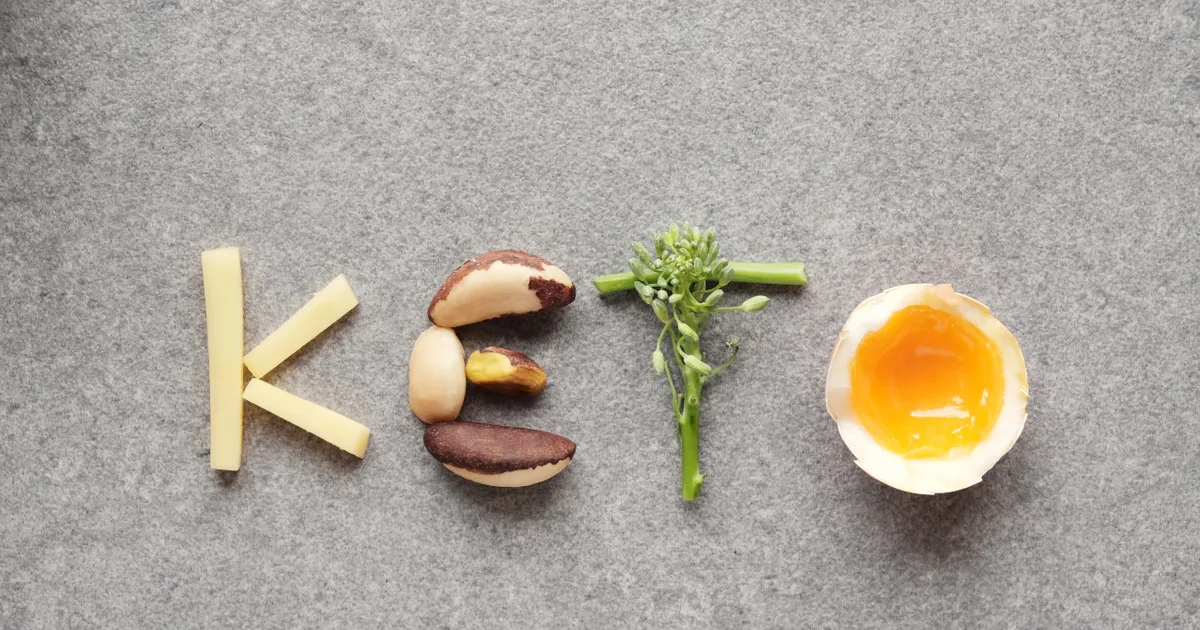The ketogenic diet, often called “keto,” is a low-carb, high-fat eating plan designed to shift your body into a state called ketosis. In ketosis, your body burns fat for fuel instead of carbohydrates, which can lead to weight loss and improved energy levels. The diet emphasizes foods like meat, fish, eggs, healthy oils, and non-starchy vegetables while limiting sugar and grains. For beginners, understanding keto’s basic principles can make it easier to start and maintain successfully.
 SewCream, Shutterstock
SewCream, ShutterstockWhat Is The Ketogenic Diet?
Though variations can exist, the ketogenic diet is a meal plan that restricts your consumption of carbohydrates while also increasing your consumption of fats and proteins. More specifically, a ketogenic diet is made up of approximately 80-percent fats, 15-percent protein, and less than 5-percent carbohydrates.
If you deny yourself carbohydrates for long enough, your body begins searching for other sources of fuel. Eventually you’ll enter what’s called ketosis, a biological process that sees your body generate energy from your fat stores and the fat that you consume as part of the ketogenic diet.
Potential Benefits of the Keto Diet
So why cut out pizza and pasta in the first place? There are a lot of reasons, and there would have to be to convince millions of people to pass on chips for good. The ketogenic diet was developed and used to treat childhood epilepsy as early as the 1920’s. It yielded such remarkable results that it’s still used as a treatment today.
The ketogenic diet is also popular among those looking to lead a healthier lifestyle. It’s a great way to lose weight quickly, but the potential benefits of the keto diet also extend to include the following:
- It may improve insulin sensitivity in those with type 2 diabetes.
- It may have anti-tumor effects that help slow tumor growth.
- It may improve the outcomes of traumatic brain injuries.
- It might improve the symptoms of Parkinson’s disease.
- It can help reduce the risk of heart disease by lowering body fat, improving blood pressure and more.
It’s important to note that the research is limited. Though some of the earliest studies show promising results, there’s still so much to know and learn about the ketogenic diet and its transformative impact on the human body.
All About the Keto Flu
If you’ve known anyone that’s actually attempted the ketogenic diet then you’ve probably heard them mention the keto flu. The keto flu is a collection of symptoms that are said to be caused by carb withdrawal, and can last for as long as seven days.
Though it often presents differently in different people, the known symptoms of keto flu include:
- Headaches
- Brain fog
- Fatigue
- Nausea
- Constipation
- Trouble Sleeping
- Irritability
It does happen to a lot of people transitioning into a low-carb diet. If it happens to you, make sure you drink lots of water, get lots of rest.
What Can You Eat?
All of this talk about ketosis and carbohydrates can get a bit confusing. Which is why most keto beginners find it easier to understand keto by looking at the list of permitted foods. There are certainly lots of foods you can’t eat, but we’ll start you off with the good news.
The goal on a keto diet is to limit your carbohydrates while increasing your intake of fats and protein. As such, the plan to get to know the following grocery items:
- Meat
- Leafy greens
- Coconut oil
- Avocado
- Nuts and seeds
- Cruciferous vegetables like broccoli and cauliflower
- Sugar-free sweeteners like stevia, erythritol, and monk fruit.
- High fat dairy including hard cheese and butter.
What Can’t You Eat?
Nothing comes without sacrifice, and the benefits of the ketogenic diet are no different. If you’re hoping to clean up your diet the keto way, you may need to completely overhaul your fridge. It all comes down to how frequently you eat carbs.
In order to restrict your carb consumption to 5-percent or less, you’ll need to completely cut out the following:
- All grains, which includes anything containing corn, wheat, rice, cereal, etc.
- All sugars
- All fruit
- Tubers, which includes potatoes and yams.
Don’t Give Up!
The ketogenic diet delivered impressive results for some people, and it may accomplish similar feats for you. Whether you make the decision to follow the ketogenic path or move on to something less restrictive, it’s important to get the green light from your doctor before making any changes to your diet.
It’s important to set your expectations too. Adhering to a strict ketogenic diet isn’t without its common obstacles. From overcoming the keto flu, to entertaining constant resistance from family and friends, the ketogenic diet can be a real struggle. If you’re open to taking our advice, we recommend not telling anybody about your new diet and let the results do the talking instead.